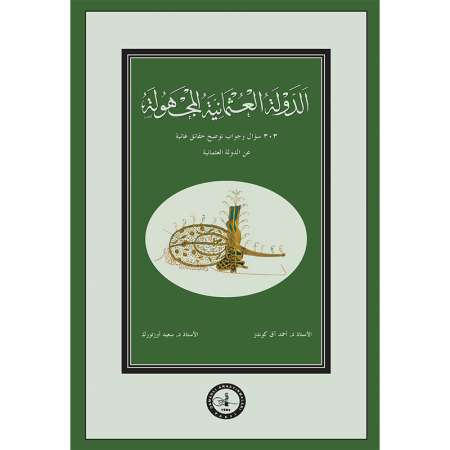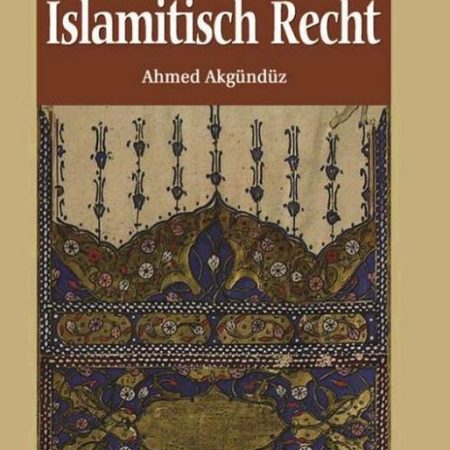Toont alle 2 resultaten
€ 29.99
“Seeing people we later met repeated that request we deemed it a academic mission that we should prepare this work under the title The Unknown Ottoman in 700 Questions on Occasion of the 700. Anniversary, print it in a large number of copies and distribute it to all those hands in need thereof. However, through warning of friends we came to realize that that would be too voluminous and that even that was published the handbook titled “Ottoman History; Misunderstandings and Truths” would definitely have to be published by selecting 300 questions from among them meticulously. In truth, it was years ago that I started writing such a book as Ahmed Akgündüz. Nonetheless, seeing that project was composed of different aspects, I wished that my revered colleague Prof. Dr. Said Öztürk, an Economics Historian, take part in this project with his academic accumulation, especially authoring the Ottoman Economic Issues in the Fourth Section. The contributions of my colleague as regards to the Economic History of the Ottoman State as well as his assistance in referring to reference books for the work to be more perfect, and revising the written texts have ensured that this book be published under two signatures.
We should mention that Prof. Dr. Akgunduz has written 290 questions with their answers and Assoc. Prof. Dr. Said Ozturk has written 13 questions with their answers. They have cooperated about references and editing the book again and again.
Our book will consist of Four Parts. In the First Part shall we deal with the weighty questions on the Political History of the Ottoman State and the replies to them. However, such questions as are most frequently asked about each sultan – even if they are related to law or economics – will be dealt with in this part. For instance, we shall not turn a blind eye to the issue of fratricide in his Legislature while making mention of Muhammad the Conqueror and the charges of the Holocaust of the Kurds when it comes to Selim the Excellent. In the Second Part, we shall answer the questions on the Social Life in the Ottoman State and the Harem. In the Third Part, we shall study those issues regarding the Ottoman Legislative System and the Organization of the State. In the Fourth and Last Part, we shall answer some questions about the Economy and the Financial Law of the Ottoman State. Unfortunately, we have failed to deal with all of the questions we have received in all the aforesaid fields owing to insufficient space. Yet we have said that if something cannot be achieved totally, it should neither be given up completely and have thus been compelled to suffice with this much.”
Toevoegen aan winkelwagen
€ 29.99
Vandaag de dag is de wereld een groot dorp geworden. Moslims en niet-moslims leven naast elkaar en dienen van elkaar te leren, elkaars gemeenschappelijkheden te delen en onderlinge verschillen te respecteren. In dit dorp leven op dit moment meer dan anderhalf miljard moslims. Een gedeelte van hen is vroom en praktiserend moslim, het gedeelte dat tracht om in overeenstemming met islamitische regels te leven, terwijl een ander gedeelte zich daar wel bewust van is, doch zich er niet consequent aan houdt. Zij gelooft wel dat deze regels van God afkomstig zijn (de Koran), van interpretaties van Zijn boodschapper (de Soenna), vanuit de consensus van de islamitische juristen (ijma'), of tenminste van regels via analogie ontleend aan de hoofdbronnen van de Islam (qiyas). Binnen het grootste gedeelte van de islamitische wereld bestaat over het bovenstaande overeenstemming. De lezer dient in het achterhoofd te houden dat moslim individuen in privéomstandigheden moeten leven volgens islamitische regels, maar niemand als individu verantwoordelijk is voor het uitvoeren van islamitische wetten, die immers onder het gezag en de verantwoordelijkheid van overheidsinstanties vallen.
Dit boek is onderverdeeld in acht hoofdstukken.
Hoofdstuk 1. Ter vermijding van vele misverstanden die ontstaan of kunnen ontstaan worden sommige begrippen met betrekking tot islamitisch recht verklaard, zoals shari'ah, fiqh, qanun, 'urf, islamitisch recht en mohammedaanse wet.
Hoofdstuk 2. Dit hoofdstuk geeft een overzicht van de vier perioden van het islamitisch recht: de periode van de Profeet Muhammed, de periode van de metgezellen, de periode van de tabi'in (volgelingen van de metgezellen) en een introductie tot de periode van de mujtahidin (hooggeleerde juristen).
Hoofdstuk 3. In dit hoofdstuk zullen we gedetailleerde informatie verschaffen over de verschillende wetscholen en theologische afdelingen.
Hoofdstuk 4. Dit hoofdstuk is gewijd aan een verwaarloosde periode in het islamitisch recht, die zich uitstrekt nadat de Turken zich tot de Islam hadden bekeerd (960) tot de beginfase van de Turkse Republiek (1926).
Hoofdstuk 5. In dit hoofdstuk analyseren we het systeem en de methodologie van islamitisch recht en lichten we deze methodologie tevens toe.
Hoofdstuk 6. In dit hoofdstuk, gewijd aan naslagwerken over islamitisch recht, kan de reële meerwaarde van dit boek worden aangetroffen.
Hoofdstuk 7. In dit hoofdstuk zullen we enige classificaties voor islamitische regels aanwijzen, mede omdat, in het bijzonder heden ten dage, vele verwarrende perspectieven op islamitisch recht aan de orde zijn. Dit hoofdstuk richt zich tevens op drie hoofdonderwerpen: Engels-mohammedaanse wetgeving (Indo-moslimwet), shari'ah of islamitisch recht in Zuidoost-Azië en islamitisch recht in tegenwoordige islamitische landen als Egypte, Pakistan, Marokko en Jordanië.
Hoofdstuk 8. In dit hoofdstuk geven we enige korte informatie over de implementatie van de islamitische wetten en over de toekomst van deze wetgeving; voorts maken we melding van enkele encyclopedische werken over islamitisch recht en nieuwe instituties met betrekking tot de islamitische fiqh.
Toevoegen aan winkelwagen 

